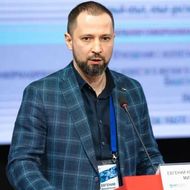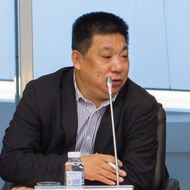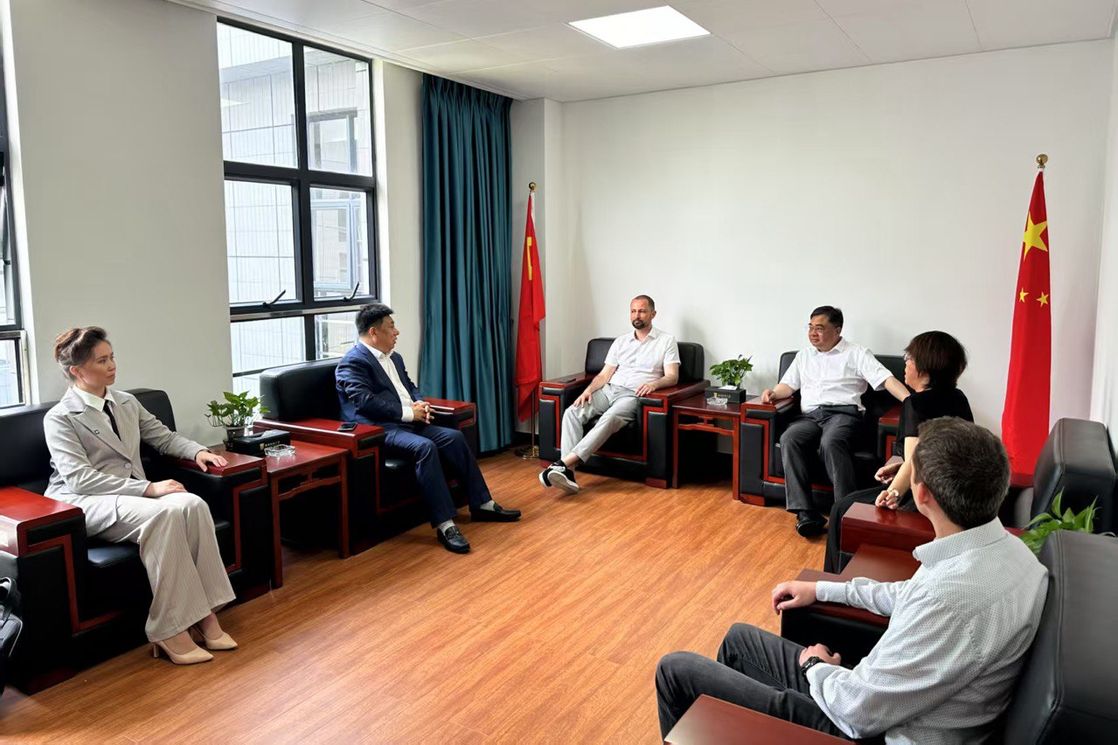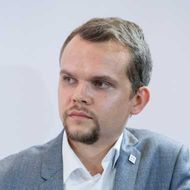Urban Studies Experts from HSE Discuss Cooperation Prospects with Chinese Partners

The team of the HSE Faculty of Urban and Regional Development (FURD) has held a series of meetings with partners in China as part of its working visit focused on advancing cooperation. The agenda included urban and agglomeration ranking research, the development of unique educational programmes in urban studies, and other key topics.
Dean of FURD Evgeny Mikhaylenko, Deputy Dean for International Affairs Victoria Khomich, and Head of the Vysokovsky Graduate School of Urbanism Ruslan Goncharov met with partners in Guangzhou and Shenyang. Notably, they held talks with the leadership of the Guangdong–CIS International Technological Cooperation Union—one of the faculty’s key partners in China. Discussions centred around joint projects such as urban and agglomeration ranking studies, academic exchanges with Chinese universities, and FURD’s planned participation in the Global Mayors’ Forum in Guangzhou in 2025.

Evgeny Mikhaylenko
‘Joint Russian–Chinese research in the field of urbanism will help tackle complex governance challenges in both major metropolitan areas and smaller towns, as well as identify development prospects. We are continuing to expand our collaboration in scientific research and plan to launch a joint educational project in the future,’ said Dean of the HSE Faculty of Urban and Regional Development Evgeny Mikhaylenko.

Guo Fengzhi
Guo Fengzhi, Secretary General of the Guangdong–CIS International Technological Cooperation Union, expressed gratitude to the FURD delegation for their friendly visit to China. ‘We held effective negotiations on a number of key areas concerning scientific and technological innovation, educational collaboration, experience exchange, and project cooperation,’ said Guo Fengzhi. ‘The faculty has long been our partner and works successfully with many regions of China. I believe the meetings in Guangzhou and Shenyang will contribute significantly to the development of Russian–Chinese relations, and we look forward to strengthening our longstanding cooperation.’

During a meeting at South China University of Technology in Guangzhou—a long-time partner of FURD—the parties discussed the joint development and implementation of innovative international programmes in urban studies. Following the talks, Russian and Chinese scholars agreed to begin designing an academic programme that will combine the unique expertise of both sides and aims to be a cutting-edge international educational product.
At Guangdong University of Finance and Economics (GUFE), which the FURD delegation visited in return following a Chinese visit to HSE in April, discussions focused on expanding academic exchange opportunities, organising summer schools, and conducting joint research within BRICS urban contexts. Moreover, GUFE’s urban studies team is planning a return visit to FURD in July 2025 to finalise cooperation plans and sign a partnership agreement.
In northern China, in Shenyang, the FURD team was received by representatives of the Shenfu Reform and Innovation Demonstration Zone Management Committee, headed by Deputy Director Liu Jia, who visited FURD in 2024. During their working meeting, both sides agreed to establish a joint mechanism for academic exchanges between HSE and Shenyang universities, as well as plans for joint international events within the BRICS framework.

Victoria Khomich
‘FURD is one of Russia’s most recognisable centres of urban expertise—from the north to the south of China. Our collaboration with educational institutions, municipalities, and urban development committees in special economic zones continues to open up new opportunities for experience exchange and integration of the faculty’s potential into the international space,’ said Victoria Khomich. ‘Joint international projects like the Urban and Innovation Environment Index and the Dynamic Urbanistics initiative—winner of HSE’s International Academic Cooperation competition in partnership with Tianjin University—demonstrate how collaborative efforts with international colleagues yield truly unique results. Our next ambitious goal is to launch an international educational programme.’

Ruslan Goncharov
‘The Vysokovsky Graduate School of Urbanism has always welcomed international cooperation. Our ambition is to become a recognised expert centre in urban development across BRICS countries—and we are steadily moving in that direction. At present, our team is studying best practices in the development of small towns in several BRICS countries, including China, and assessing how applicable they are to the Russian context. We will present interim results of this research at the Vysokovsky Forum on June 5, 2025, and I take this opportunity to invite everyone to attend. We have excellent relations with our Chinese colleagues, and we are grateful for the warm welcome and active support of our research initiatives. We eagerly look forward to putting all our plans into action,’ concluded Ruslan Goncharov.
See also:
Designing an Accurate Reading Skills Test: Why Parallel Texts are Important in Dyslexia Diagnosis
Researchers from the HSE Centre for Language and Brain have developed a tool for accurately assessing reading skills in adults with reading impairments. It can be used, for instance, before and after sessions with a language therapist. The tool includes two texts that differ in content but are equal in complexity: participants were observed to read them at the same speed, make a similar number of errors, and understand the content to the same degree. Such parallel texts will enable more accurate diagnosis of dyslexia and better monitoring of the effectiveness of interventions aimed at addressing it. The paper has been published in Educational Studies.
Intellectual Capital in the Face of Shocks: Russia and Iran Explore Internationalisation
In today's issue of Schola, Mariya Molodchik, Senior Research Fellow at the International Laboratory of Intangible-Driven Economy and Professor at the School of Economics and Finance at HSE University’s Campus in Perm, discusses a joint project with Iran University of Science and Technology, titled 'Internationalization of Companies from Developing Countries: The Role of Intellectual Resources in Response to Exogenous Shocks.'
HSE Researchers Introduce Novel Symmetry-Aware Neural Network Architecture
Researchers at the HSE Laboratory for Geometric Algebra and Applications have developed a new neural network architecture that can accelerate and streamline data analysis in physics, biology, and engineering. The scientists presented their solution on July 16 in Vancouver at ICML 2025, one of the world's leading conferences on machine learning. Both the paper and the source code are publicly available.
Students from HSE and Other Universities Carry Out Research Expedition at New Chersonesos
As part of the Rediscovering Russia student expedition programme, HSE University organised a research trip under the framework of the School for Young Humanities Scholars to the New Chersonesos museum and church complex in Sevastopol. The results of this expedition will form the basis for proposals on educational projects aimed at shaping young people’s historical memory of the role of Chersonesos, Crimea, and the Byzantine legacy in the history of Russian culture and statehood.
HSE Researchers Determine Frequency of Genetic Mutations in People with Pulmonary Hypertension
For the first time in Russia, a team of scientists and clinicians has conducted a large-scale genetic study of patients with pulmonary arterial hypertension. The team, which included researchers from the International Laboratory of Bioinformatics at the HSE Faculty of Computer Science, analysed the genomes of over a hundred patients and found that approximately one in ten carried pathogenic mutations in the BMPR2 gene, which is responsible for vascular growth. Three of these mutations were described for the first time. The study has been published in Respiratory Research.
First Caucasus School on Experimental Research and Cognitive Sciences Takes Places in Adygea
On September 17–20, 2025, the First Caucasus School on Experimental Research and Cognitive Sciences took place at the Gornaya Legenda venue of Adyghe State University (ASU). The event was organised by the ASU Experimental Linguistics Laboratory, the HSE Centre for Language and Brain, and the HSE Centre for Sociocultural and Ethnolinguistic Studies. The school brought together over 50 participants—students, doctoral candidates, and early-career researchers from across Russia, along with lecturers and speakers from France, Serbia, China, Turkey, Kazakhstan, and Uzbekistan.
HSE Scientists Reveal How Disrupted Brain Connectivity Affects Cognitive and Social Behaviour in Children with Autism
An international team of scientists, including researchers from the HSE Centre for Language and Brain, has for the first time studied the connectivity between the brain's sensorimotor and cognitive control networks in children with autism. Using fMRI data, the researchers found that connections within the cognitive control network (responsible for attention and inhibitory control) are weakened, while connections between this network and the sensorimotor network (responsible for movement and sensory processing) are, by contrast, excessively strong. These features manifest as difficulties in social interaction and behavioural regulation in children. The study has been published in Brain Imaging and Behavior.
Scientists Develop New Method to Detect Motor Disorders Using 3D Objects
Researchers at HSE University have developed a new methodological approach to studying motor planning and execution. By using 3D-printed objects and an infrared tracking system, they demonstrated that the brain initiates the planning process even before movement begins. This approach may eventually aid in the assessment and treatment of patients with neurodegenerative diseases such as Parkinson’s. The paper has been published in Frontiers in Human Neuroscience.
Global AI Trends Discussed at International Foresight Workshop at HSE University
At an international foresight workshop on artificial intelligence held at HSE University, Russian and foreign scholars discussed the trends and challenges arising from the rapid development of AI.
'Biotech Is Booming Worldwide'
For more than five years, the International Laboratory of Bioinformatics at the HSE Faculty of Computer Science has been advancing cutting-edge research. During this time, its scientists have achieved major breakthroughs, including the development of CARDIOLIFE—a unique genetic test unmatched worldwide that predicts the likelihood of cardiovascular disease. With the active participation of HSE students, including doctoral students, the team is also working on a new generation of medicines. In this interview with the HSE News Service, Laboratory Head Maria Poptsova shares insights into their work.


